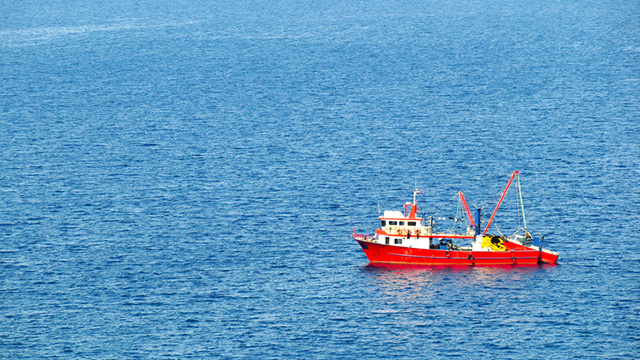Banning Transshipment At-Sea Necessary to Curb Illegal Fishing, Researchers Conclude
The practice often occurs on the high seas and beyond the reach of any nation's jurisdiction

Banning transshipment at-sea—the transfer of fish and supplies from one vessel to another in open waters—is necessary to diminish illegal fishing, a team of researchers has concluded after an analysis of existing maritime regulations.
"This practice often occurs on the high seas and beyond the reach of any nation's jurisdiction, allowing ships fishing illegally to evade most monitoring and enforcement measures, offload their cargo, and resume fishing without returning to port," explains Jennifer Jacquet, an assistant professor in New York University's Department of Environmental Studies and one of the paper's co-authors. "It's one way that illegal fish are laundered into the seafood market."
"More significantly, transshipment at-sea can facilitate trafficking and exploitation of workers who are trapped and abused on fishing vessels because there is simply no authority present to protect those being exploited," adds Chris Ewell, an NYU undergraduate at the time of the study and the paper's lead author.
Related Article: Using Insect Protein to Produce More Sustainable Fish Feed
The paper, which appears in the journal Marine Policy, may be downloaded here: http://bit.
In their study, the researchers focused on the regulation of transshipment, which the United Nations Food and Agriculture Organization (FAO) defines as the "act of transferring the catch from one fishing vessel to either another fishing vessel or to a vessel used solely for the carriage of cargo."
Specifically, they examined transshipment at-sea regulations across 17 Regional Fisheries Management Organizations (RFMOs)—multi-national entities responsible for regulating fisheries on the high seas—to create a "scorecard" on the permissibility of this practice around the globe.
The researchers note that transshipment at-sea regulations have become increasingly strict in most RFMOs since the late 1990s. However, in 2015, the year of study, only five RFMOs had mandated even a partial ban and only one RFMO, the South East Atlantic Fisheries Organization (SEAFO), has mandated a total ban on transshipment at-sea.
"A total ban on transshipment at-sea on the high seas would support the ability of oversight and enforcement agencies to detect and prevent illegal fishing and also likely reduce human trafficking and forced labor on the high seas," the study's authors recommend.
